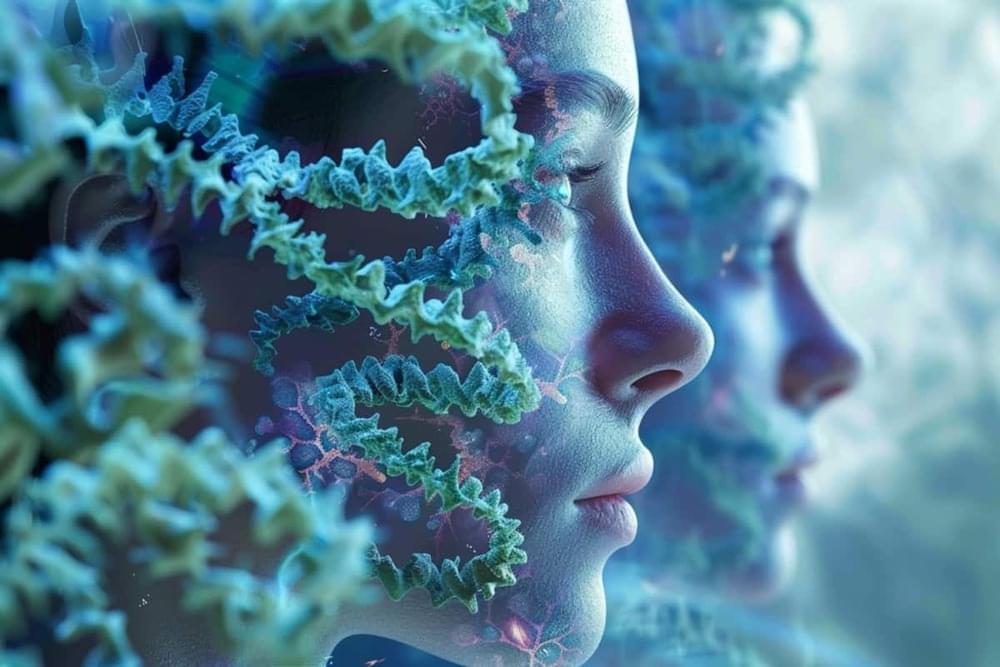Ending Alzheimer’s Disease Everywhere — Dr. Tim MacLeod, PhD & Dr. Vaibhav Narayan, PhD, Davos Alzheimer’s Collaborative.
Get the latest international news and world events from around the world.

Quantum dance of entangled photons captured in real-time
The captivating world of quantum mechanics is constantly evolving, revealing complexities that challenge our perception of reality. Recent advancements illuminate the puzzling wave functions of entangled photons, providing remarkable insights into the behavior of these fundamental particles.
At the forefront of this research are experts from the University of Ottawa and Sapienza University of Rome. Their innovative approach allows for real-time visualization of entangled photon wave functions, pushing the boundaries of what we thought possible in quantum science.
Quantum entanglement is a mind-boggling phenomenon that underscores the profound interconnectedness of two particles.

Akima lands $480 million Space Force contract to modernize Satellite Control Network
WASHINGTON — The U.S. Space Force awarded Akima’s subsidiary Five Rivers Analytics a $480 million 10-year contract to support and modernize the Satellite Control Network — a decades-old system of 19 globally distributed parabolic antennas spread across several locations worldwide.
Akima, an Alaska Native Corporation-owned defense contractor, won the contract dubbed STORMS (Satellite Control Network Tracking Station Operations, Remote Site and Mission Partner Support).
The STORMS contract is an Indefinite Delivery/Indefinite Quantity (IDIQ) agreement. This type of contract allows the Space Force to procure services as needed over a specified period. It succeeds the previous $445 million CAMMO (Consolidated Air Force Satellite Control Network Modifications and Maintenance Operations) contract won by CACI International in 2016.


During the cosmic dawn, space wasn’t as empty as it seems today
Have you ever wondered what the universe looked like after the Big Bang when it was still in its infancy, a mere billion years old? With NASA’s new Nancy Grace Roman Space Telescope, we’re about to get a glimpse of the cosmic dawn.
This cosmic time machine is set to explore an era known as the cosmic dawn, a significant transition when the universe went from a foggy opacity to the stunning, star-filled expanse we observe today.
Behind this ambitious project is the esteemed astrophysicist Michelle Thaller from NASA’s Goddard Space Flight Center in Greenbelt, Maryland.
$15M rail line upgrade to create hundreds of jobs in East Texas
The North East Texas Regional Mobility Authority (NET RMA) announced a $15 million infrastructure project that will soon begin to revitalize the Henderson Overton Branch rail line.
Visit this article.
KETK/FOX51 News covers East Texas, bringing you the latest local stories, weather, sports and lifestyle coverage from the Piney Woods.
Keep up with KETK/FOX51 News: https://www.ketk.com/
Download the KETK/FOX51 app: https://www.ketk.com/apps/
Find us on Facebook: / ketknbc and / kfxkfox51.


Epigenetics Unlocks Secrets of Memory Formation
Summary: A new study reveals that the epigenetic state of neurons determines their role in memory formation. Neurons with open chromatin states are more likely to be recruited into memory traces, showing higher electrical activity during learning.
Researchers demonstrated that manipulating these epigenetic states in mice can enhance or impair learning. This discovery shifts the focus from synaptic plasticity to nuclear processes, offering potential new avenues for treating cognitive disorders.
NVIDIA adds tools it says will accelerate development of humanoid robots
NVIDIA workflows connect real and synthetic data
Training foundation models for humanoid and other robots typically requires large amounts of data, noted NVIDIA. Teleoperation is one way to capture human demonstration data, but it can be expensive and time-consuming, it said.
NVIDIA announced a workflow that uses AI and Omniverse to enable developers to train robots with smaller amounts of data than previously required. First, developers use Apple Vision Pro to capture a relatively small number of teleoperated demonstrations.

Cosmic Simulation Reveals How Black Holes Grow and Evolve
A team of astrophysicists led by Caltech has managed for the first time to simulate the journey of primordial gas dating from the early universe to the stage at which it becomes swept up in a disk of material fueling a single supermassive black hole. The new computer simulation upends ideas about such disks that astronomers have held since the 1970s and paves the way for new discoveries about how black holes and galaxies grow and evolve.
“Our new simulation marks the culmination of several years of work from two large collaborations started here at Caltech,” says Phil Hopkins, the Ira S. Bowen Professor of Theoretical Astrophysics.
The first collaboration, nicknamed has focused on the larger scales in the universe, studying questions such as how galaxies form and what happens when galaxies collide. The other, dubbed STARFORGE, was designed to examine much smaller scales, including how stars form in individual clouds of gas.